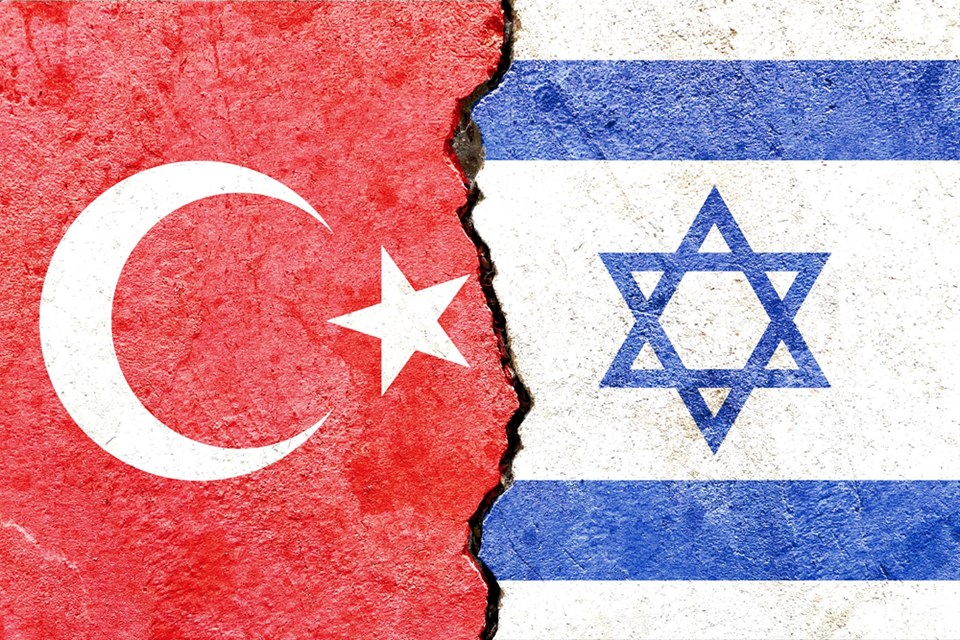
The attempt to revive the Israeli-Turkish relationship, which has been taking place in recent weeks, shows cautious signs of success. A series of behind-the-scenes moves combined with public ones prepared the ground for President Herzog's visit to Ankara on March 9. The Turkish interest in accelerating contacts between the two countries was met initially with caution on the Israeli side. However, it seems that Israel has been "convinced" that it is time to move on to more practical and concrete lines in recent days. The Turkish Foreign Minister has announced that he will visit Israel on May 24, probably accompanied by the Minister of Energy.[1] At the root of the matter are several steps, and chief among them is the feeling that the two countries have managed to contain, each in its way, the recent terrorist attacks and especially the tension and events in Jerusalem and the Temple Mount. The Turkish president called his Israeli counterpart on April 19 to express his "concern and sorrow" in the face of tensions on the Temple Mount. At the same time,Turkey expressed a dissatisfaction with Israel's clarification that it intends to maintain the status quo on the Temple Mount.[2] According to various reports, Turkey prevented the return of a few Hamas operatives to its territory and, in any case, clarified to the organization that it was seeking a rapprochement with Israel. In doing so, Ankara took one of the critical steps required by Israel to test the sincerity of the Turkish move.
It is essential to clarify that the Turkish side understood, it seems, that expectations need to be coordinated for progress in the improvement in relationsto avoid early crises. President Erdogan made it clear that improving ties with Israel should also serve Palestinian interests and in any case refrained from setting red lines, or preconditions, that could make the diplomatic process vis-à-vis Israel more difficult. Ankara, it seems, also understands the complex political arena in Israel, and the fragile situation of the Bennett government. In a recent article, this cautious process between the two countrieswas referred as a positive "al-Aqsa diplomacy" which was required to contain the tension on the Temple Mount, stressed the importance of the Erdogan-Herzog channel, and expressed understanding for Prime Minister Bennett's cautious approach given the draw in the balance of power in the Knesset.[3] Furthermore, there was a call for the process to be conducted transparently, and to focus on those areas in which cooperation can take place - "focusing on areas for cooperation, understanding of each party's sensitivities, and intensive dialogue will help pass the tests (facing the two countries)."
Now, it is needed to prepare for the visit of the Turkish Foreign Minister, who will also visit Ramallah, to maintain the positive momentum between the two countries. Presumably, in the absence of (severe) crises on the ground - in Jerusalem, the West Bank, or the Gaza Strip - the Turkish minister will be able to make it clear to the Palestinian Authority's interlocutors that the normalization process with Israel will not come at their expense, and in any case no more than that resulting from the Abraham Accords. It is also likely that talks with Israel will lead to the return of the ambassadors.
The war in Ukraine will probably be a significant issue, and it is to be expected that the two governments will "share their experiences" about their – similar, it must be said –approach in to deal with a crisis of this magnitude.
More precisely, the energy-matter, the possible cooperation between Israel and Turkey will occupy, one would expect, a central place in the talks. The Israeli dilemma in this context is more complex. The war in Ukraine turned a new (and attractive) spotlight on natural gas in the eastern Mediterranean. Although these are not quantities that can significantly change the desire of Europe (and Turkey) to decrease its energy dependence on Russia, and of course not in the immediate term; the Turkish interest in Israeli gas is quite clear. The political-strategic aspect plays an essential part in it, no less than the energetic one. At this stage, it seemsnecessary to establish a joint Israeli-Turkish working group, which will seriously examine the possible energetic and political directions of action while weighing the implications, certainly for Israel, of the close and strategic relationship with its partners in the region. It has been recently reported that there is an intention to hold an Israeli-Greek-Cypriot-American meeting at the level of Foreign Ministers that will again emphasize the crucial architectures built in the region.
In recent days, the Israeli-Turkish political discourse has also been accompanied by collaborations that are being formed or renewed, in the academic and cultural spheres. These are essential steps for restoring and strengthening the support of both public opinions for the political dialogue. Therefore, one should expect a political tango, not necessarily too stormy and close, but indeed fascinating.
[1] Reuters, “Turkey's Top Diplomat to Visit Israel on May 24 amid Efforts to Mend Fences.” VOA, 21 April 2022,https://www.voanews.com/a/turkey-s-top-diplomat-to-visit-israel-on-may-24-amid-efforts-to-mend-fences-/6538598.html
[2] Times of Israel staff, and AFP, “Turkey's Erdogan Expresses Concern over Temple Mount Tensions in Call with Herzog.” The Times of Israel, 19 April 2022, https://www.timesofisrael.com/turkeys-erdogan-expresses-concern-over-temple-mount-tensions-in-call-with-herzog/
[3] Burhanettin Duran, “Turkey-Israel Normalization Undergoes Series of Tests.” SETA (25 April 2022) https://www.setav.org/en/turkey-israel-normalization-undergoes-series-of-tests/